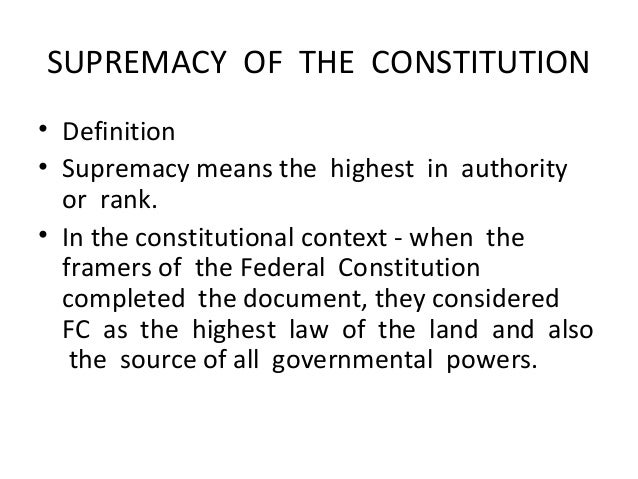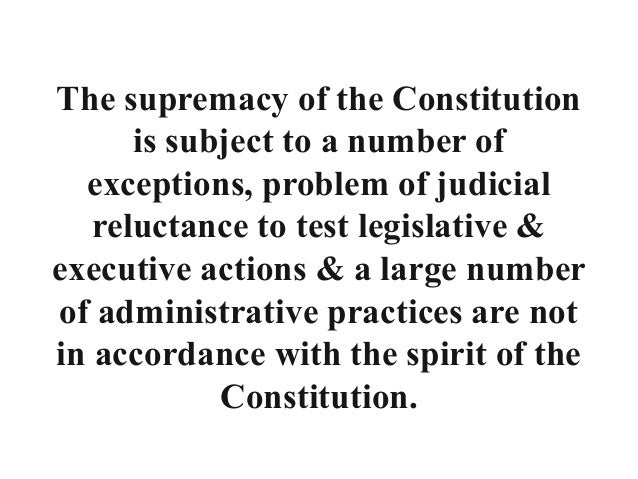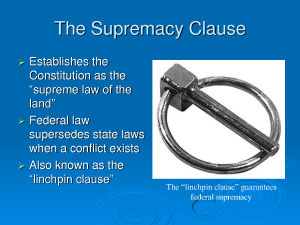The concept
of Supremacy of the Constitution means that, the constitution is the
supreme law of the land and every authority or person created by the
constitution is bound by its provisions.
Not only
are government officials bound by the provisions of the constitution but also
the people whether majority/minority.

Supremacy
of the Constitution arises from different considerations:
1. The constitution is considered supreme if it has been
enacted by a legislature with supreme authority. e.g. the constitutions of
Australia and Canada.
2. A constitution may also be considered supreme if it
has been enacted by the people. e.g. the Irish Constitution that was enacted by
the people through a referendum and without consultation/approval of the
British parliament, but passed their constitution in the name of the people.

Many
constitutions of countries of the world derive their authority from the people.
The preamble of such constitutions provides: “We the
people of _________ hereby enact and adopt this constitution.” From the
preamble, it means that the people have inherent powers to enact a constitution
of their choice.
And every
authority in exercise its powers must be conscious of the fact that the Supremacy
of the Constitution is derived from the people.
The
inherent powers of the people to enact a constitution unto themselves is not
just a legal theory but has received judicial notice in the case of McCulloch V. Maryland.
The 1999
Constitution like its predecessor claims to derive its validity from the
people. All the pre-colonial as well as the Independence Constitution were
enacted by the British parliament. It can be said that they derived their
validity/supremacy from the fact that they were enacted by the British
parliament. The 1999 Constitution was enacted by the Provincial Ruling
Council under the military regime. Such a constitution can be said to
derive its supremacy from the Provincial Ruling Council.

The Supremacy
of the Constitution could also arise from the logic of the situation. The
constitution creates authorities and such authorities that are created and
established by the government are to exercise their powers as well as be bound
by such limitations placed in the constitution.
For the
constitution will be useless if its provisions are not respected. In Marbury V. Madison, the court held to the effect;
any law that is inconsistent with the provision of the constitution shall be
declared invalid. This preposition has also been recognized by Nigerian courts.
In the Nigerian case of Attorney General of Abia
State and Ors V. Attorney General of the Federation, the court held
the electoral act of 2004 to be inconsistent with S.
7 of the Constitution that vested powers in the State Houses of
Assembly to make laws in respect to local government structure, function and
finance.
The
supremacy principle has been provided in the following sections of the
constitution:
S.
1(1) – this constitution
shall be the supreme law of the land and shall have binding effects on persons
throughout the federation.
S.
1(2) – no body or body of persons shall take over any part of
Nigeria or the whole country except in accordance with the provisions of the
Constitution.
S.
1(3) – any law inconsistent with the provision of the Constitution
shall to the level of its inconsistency be declared null and void, and the
provision of the constitution shall prevail.





0 remarks:
Post a Comment